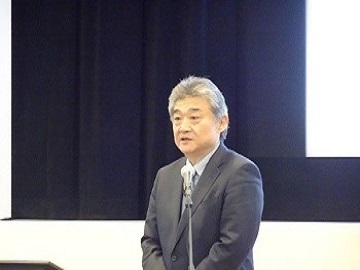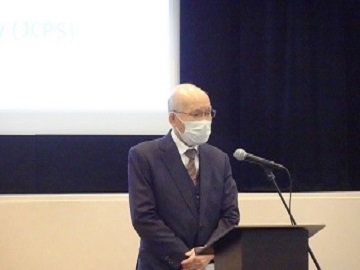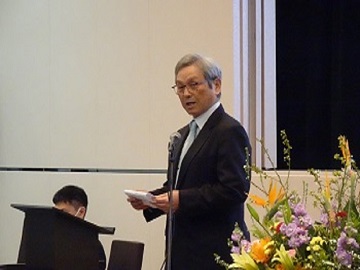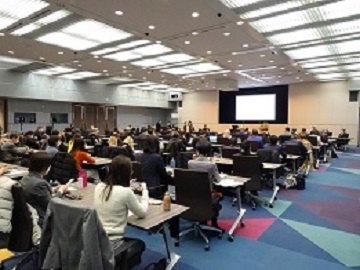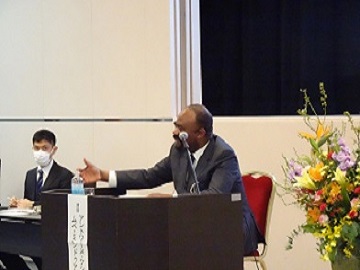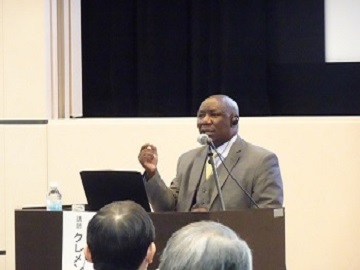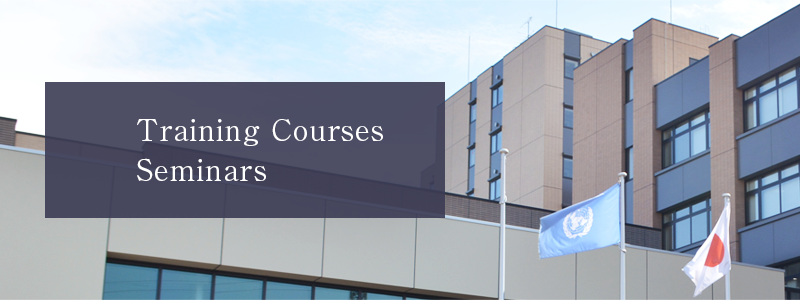Report of the Public Lecture
The 41st Public Lecture on Criminal Justice Policy was held on 27 January 2023. UNAFEI, the Japan Criminal Policy Society (JCPS) and the Asia Crime Prevention Foundation (ACPF) have hosted this annual event since 1982.
This year, the event was held in a hybrid format (in-person and online) so that many participants from both Japan and overseas could participate. As a result, we had 98 in-person participants and 277 online participants, which shows that the lecture topic was of great interest of the public.
Lectures
We invited lecturers from the International Criminal Court (ICC) and the Probation and Aftercare Service of Kenya.
Lecture ①
“Role of the International Criminal Court in Providing Accountability for the Gravest Crimes under International Law, especially Crimes Against Children”
H.E. Judge Antoine Kesia-Mbe Mindua
Second Vice-President, ICC
Lecture slides are available
here![]()
Lecture ②
“The Development of the Juvenile Justice System in Kenya and the Management of Children Involved in Violent Crimes”
Mr. Clement Okech
Deputy Director of Probation and Aftercare Service
State Department for Correctional Services
Ministry of Interior & Co-ordination of National Government
Republic of Kenya
Lecture slides are available here![]()
Overview
H.E. Judge Mindua explained the ICC’s role of providing accountability for the most serious crimes prescribed under the Rome Statute, touching on its organization, triggering mechanisms to start an investigation, types of crimes under the ICC’s jurisdiction, the necessity of State-level commitment to and cooperation with the ICC, and so forth. He also introduced measures for crime victims as an essential part of the ICC’s role, including the right of victims to participate in proceedings with legal assistance and to request reparations, emphasizing that the ICC has paid special attention to the specific needs of child victims and witnesses.
Mr. Okech explained the theories and models applicable to juvenile justice system, and introduced various options of institutional corrections and community corrections for children in conflict with the law in Kenya as provided in the Children’s Act. He emphasized the importance of designing a juvenile justice system which accommodates the best interests of the child, and shared important perspectives in dealing with children in conflict with the law, including the necessity of assessing individual risk factors, using incarceration as the last resort and promoting community reintegration.
Both lectures covered important themes in establishing a just, peaceful and inclusive society as envisioned by Goal 16 of the SDGs. We hope this event provided all participants with useful knowledge for moving forward in their respective fields.
